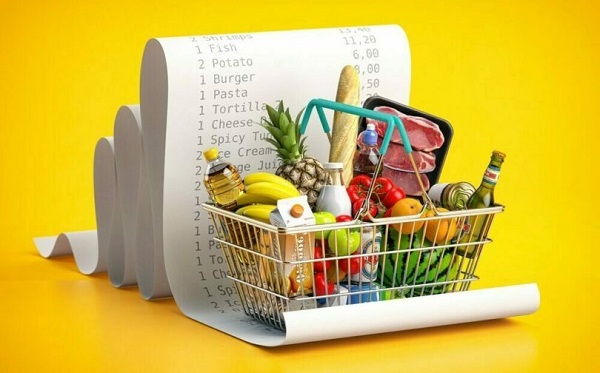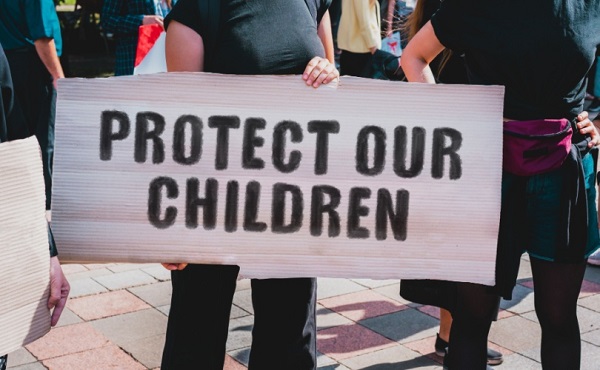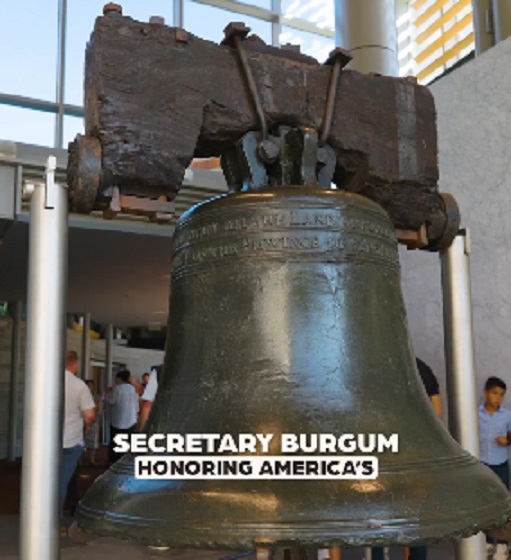National
Trudeau’s agenda is failing Canadians as 2 million visit food banks each month

From LifeSiteNews
According to an October report from Food Banks Canada, Canadians made 2,059,636 visits to a food bank in March alone, as overall visits have increased 6% from last year’s record-breaking numbers. But what, if anything, is being done to fix this?
More Canadians than ever are relying on food banks to feed their families, as usage has increased 90% from 2019.
According to an October report from Food Banks Canada, Canadians made 2,059,636 visits to a food bank in March alone, as overall visits have increased 6% from last year’s record-breaking numbers.
“Compared to before the pandemic, there has been a significant increase in two-parent households with children under 18 accessing food banks — from 18.8% in 2019 to nearly 23% in 2024,” reads the report.
“Two-parent families who access food banks are more likely to live in larger urban areas of 100,000 or more, which contributes to the higher usage rates in those areas,” it continued. “This trend is consistent with other research findings that show households with children have been especially hard hit by rapidly rising costs of living.”
Conservative Party Leader Pierre Poilievre commented on the situation, saying, ” Food Banks Canada reports more than 2 MILLION food bank visits in ONE MONTH—after the carbon tax sent food prices up 36% faster than in the U.S. This is Canada after 9 years of NDP-Liberals.”
According to the report, families are increasingly forced to rely on food banks, as one-third of the recipients were children, making 700,000 monthly visits this year.
Food Banks Canada attributed the rising reliance on food banks to “rapid inflation, housing costs and insufficient social supports.” According to the report, 18% of food bank recipients are gainfully employed while 70% are in the rental market.
Finding a solution
The report recommended “a groceries and essentials benefit,” by modifying the existing GST quarterly credit given to low-income Canadians.
However, it should be clear that giving struggling Canadians a tax benefit merely treats the symptom, not the problem itself. The disease is not rising food prices, it is Prime Minister Justin Trudeau’s radical policies that have created a failing economy fueled by inflationary government spending and a punitive carbon tax regime.
Taxing the “carbon” emitted in the production and transportation of Canadians’ food and then returning a fraction of the money not only drives Canadians into poverty, but makes them reliant on handouts.
The Trudeau government needs to reign in its reckless spending and reverse its radical tax policies, returning the economic power to citizens and away from bureaucrats.
Despite the clear need for this, Trudeau’s government appears bent on doing the opposite. As LifeSiteNews previously reported, a 2023 October Parliamentary Budget Officer report found that Trudeau’s carbon tax is costing Canadians hundreds of dollars annually as government rebates remain insufficient to compensate for the increased fuel prices, yet he remains committed to further increasing the tax.
Reports have revealed that a carbon tax of more than $350 per tonne is needed to reach Trudeau’s net-zero goals by 2050. Currently, Canadians living in provinces under the federal carbon pricing scheme pay $80 per tonne, a rate that will be raised to $170 per tonne by 2030.
Directly following a report that Canada’s poverty rate increased for the first time in years due to high inflation spurred by government spending, polls showed that nearly half of Canadians are only $200 from complete financial ruin, and yet the Trudeau government continues down its same path.
Unfortunately for Canadians, if the past nine years show us anything, it seems that regardless of how bleak the data, the Trudeau government has only its ideological agenda in mind.
Carbon Tax
Canadian energy policies undermine a century of North American integration

Energy trade with the U.S. alone is over C$80 billion more than all merchandise trade between Canada and China
Canada’s energy sector is a cornerstone of North American prosperity, but a number of federal policies have weakened its foundation over the past decade, observes a new MEI publication released this morning.
“For a century, this North American energy machine kept churning, irrespective of political winds and to the betterment of everyone on both sides of the 49th parallel,” says Taylor MacPherson, associate researcher at the MEI and author of the report. “But we can’t take it for granted; we must be steadfast in protecting this unique, mutually beneficial relationship.”
Canada is the world’s fourth-largest oil producer, fifth-largest natural gas producer, and third-largest hydroelectric generator.
Canadian exports of hydrocarbons—commodities such as crude oil, natural gas, natural gas liquids, and refined petroleum—to the United States alone totalled C$169.8 billion in 2024. This represents 22 per cent of all goods Canada exported that year.
Canada imported C$33.4 billion in U.S. hydrocarbons, representing 4 per cent of all goods imports.
“This partnership is a genuine two-way lifeline,” said Mr. MacPherson. “In the winter, U.S. gas backs up Ontario during the frigid months, while Canadian gas feeds Californian power plants in the summer, so neither country is exposed to excessive price shocks.”
The two nations have complementary market structures: for instance, Canada produces heavy crude ideal for America’s complex refineries. In the meantime, U.S. shale fields produce light oil that eastern Canadian refineries can use.
Two-way energy trade stands at over C$200 billion annually, equalling 13 per cent of all Canadian merchandise trade. This is larger than Canada’s entire two-way merchandise trade with China in 2024, which stood at C$118.7 billion.
The energy sector accounts for 10.3 per cent of Canada’s GDP in 2023 and 3.4 per cent of employment, totalling 697,000 jobs.
Employment in the sector is among the best paid in the country, with average annual compensation in oil and gas reaching roughly C$200,000, compared to just over C$75,000 across all industries.
Total contributions to government coffers from the industry are substantial, with tens of billions of dollars collected in 2024-2025, including close to C$22 billion by Alberta alone.
“This is not just money on a spreadsheet,” says Mr. MacPherson. “It is what funds our schools, our hospitals, and the services Canadians rely on. The government risks weakening our communities with its recent actions.”
Recent legislation has made the development of the energy sector increasingly difficult, which risks undermining this integration, to everyone’s detriment.
In 2019, the Impact Assessment Act replaced earlier legislation, and uncertainty created by its adoption has been reported to be a contributor to the drop in Canadian investment.
Another emerging threat has been the federal government’s proposed oil and gas emissions cap. If Ottawa were to remove it, as has been suggested, it would be removing what has long been perceived as a production cap by the industry.
Canada’s 2019 Oil Tanker Moratorium Act bans large crude and “persistent” oil tankers from B.C.’s north coast, effectively shutting the door on any major export terminal at Prince Rupert, Kitimat, or nearby ports.
“North American energy integration is a marvel of pipelines and power lines,” says Mr. MacPherson. “A confluence of harmful legislation risks toppling Canada as an energy leader, and will leave us a far cry from becoming the ‘energy superpower’ promised by Prime Minister Carney.”
You can read the Economic Note here.
* * *
The MEI is an independent public policy think tank with offices in Montreal, Ottawa, and Calgary. Through its publications, media appearances, and advisory services to policymakers, the MEI stimulates public policy debate and reforms based on sound economics and entrepreneurship.
armed forces
2025 Federal Budget: Veterans Are Bleeding for This Budget

How the 2025 Federal Budget Demands More From Those Who’ve Already Given Everything
I’ve lived the word sacrifice.
Not the political kind that comes in speeches and press releases the real kind. The kind Mark Carney wouldn’t know if it slapped him in the face. The kind that costs sleep, sanity, blood. I’ve watched friends trade comfort for duty, and I’ve watched some of them leave in body bags while the rest of us carried the weight of their absence. So when the Prime Minister stood up this year and told Canadians the new budget would “require sacrifice,” I felt that familiar tightening in the gut the one every veteran knows. You brace for impact. You hope the pain lands in a place that makes sense.
It didn’t.
Kelsi Sheren is a reader-supported publication.
To receive new posts and support my work, consider becoming a free or paid subscriber.
Six months into Mark Carney’s limp imitation of leadership, it’s painfully clear who’s actually paying the bill. The 2025 budget somehow managing to bleed the country dry while still projecting a $78-billion deficit shields the political class, funnels money toward his network of insiders, and then quietly hacks away at the one department that should be sacrosanct: Veterans Affairs Canada.
If there’s one group that’s earned the right to be spared from government-imposed scarcity, it’s the people who carried this country’s flag into danger. Veterans don’t “symbolize” sacrifice they embody it on the daily And when Ottawa tightens the belt on VAC, the consequences aren’t abstract. They’re brutal and direct, causing nothing but more death and destruction. But Mark Carney doesn’t lose sleep over veterans killing themselves.
Punishment disguised as budgeting for a veteran means the difference between keeping a roof or sleeping in a truck. Punishment disguised as budgeting means PTSD left untreated until it turns a human being into another suicide statistic. Punishment disguised as budgeting means a veteran choosing between groceries and medication because some number-shuffler in Ottawa wants to pretend they’re being “responsible.”
This isn’t fiscal restraint it’s political betrayal wrapped in government stationery. Ottawa sells it as hard choices, but the hardness always falls on the backs of the same people: the ones who already paid more than their share, the ones who can’t afford another hit. Carney and his cabinet won’t feel a thing. Not one missed meal. Not one sleepless night. Not one flashback.
But the men and women who already paid in flesh? They’re the ones being told to give more.
That’s not sacrifice.
That’s abandonment dressed up as fiscal policy.
And Canadians need to recognize it for what it is a government that demands loyalty while refusing to give any in return. The fine print in the government’s own documents reveals what the slogans won’t.
Over the next two years, VAC plans to cut $2.227 billion from its “Benefits, Services and Support” programs. [2] Broader “savings initiatives” reach $4.4 billion over four years, much of it through reductions to the medical-cannabis program that thousands of veterans rely on to manage chronic pain and PTSD. [3] Independent analysts estimate yearly losses of roughly $900 million once the cuts are fully implemented. [4]
To put that in perspective: no other department is seeing reductions on this scale. Not Defence, not Infrastructure, not the Prime Minister’s Office thats for damn sure. Only the people who’ve already paid their debt to this country are being asked to give again.
The government’s line is tidy: “We’re not cutting services we’re modernizing. Artificial Intelligence will streamline processing and improve efficiency.”
That sounds fine until you read the departmental notes. The “modernization” translates into fewer human case managers, longer waits, and narrower eligibility. It’s austerity dressed up as innovation. I’ve coached veterans through the system. They don’t need algorithms; they need advocates who understand trauma, identity loss, and the grind of reintegration. They need empathy, not automation.
This isn’t abstract accounting. Behind every dollar is a life on the edge, the human cost and toll is very real.
- Homelessness: Veterans make up a disproportionate number of Canada’s homeless population. Cutting benefits only deepens that crisis.
- Mental Health: Parliament’s ongoing study on veteran suicide shows rising rates of despair linked to delays and denials in VAC services. [5] Knowing MAID for mental illness alone in 2027 will take out a significant amount of us.
- Food Insecurity: A 2024 VAC survey found nearly one in four veterans reported struggling to afford basic groceries. That’s before these cuts.
We talk about “service” like it ends with deployment. It doesn’t. Service continues in how a nation cares for those who carried its battles, and this doesn’t include the cannabis cut to medication or the fight’s we have to fight when they tell us our injuries are “not service related”
The insult is magnified by the timing. These cuts were announced just days before November 11 Remembrance Day, when Canadians bow their heads and say, “We will remember them.”
Apparently, the government remembered to draft the talking points but forgot the meaning behind them, not a single one of the liberal government should have been allowed to show their faces to veteran’s or at a ceremony. They’re nothing but liars, grifters and traitors to this nation. Yes I’m talking about Jill McKnight and Mark Carney.
The budget still runs the second-largest deficit in Canadian history. [6]
Veteran cuts don’t fix that. They barely dent it. What they do is let the government say it’s “finding efficiencies” while avoiding the real structural overspending that created the problem in the first place. When a government chooses to protect its pet projects and insider contracts while pulling support from veterans, that’s not fiscal discipline it’s moral cowardice. The worst part is that This isn’t an isolated move. It fits a six-month pattern: large, attention-grabbing announcements about “reform,” followed by fine print that concentrates power and shifts burden downward. Veterans just happen to be the first visible casualty.
The same budget expands spending in other politically convenient areas green-transition subsidies, digital-governance infrastructure, and administration while the people who once embodied service are told to tighten their belts.
As a combat veteran, I know what it’s like to come home and realize that the fight didn’t end overseas it just changed terrain. We fought for freedom abroad only to watch bureaucratic neglect wage a quieter war here at home. Veterans don’t ask for privilege. They ask for respect, for competence, for follow-through on the promises this country made when it sent them into harm’s way.
Here’s what really needs to change, the liberal government has to go, thats step one. Restore VAC funding immediately. Any “savings” plan that touches benefits, services, or support should be scrapped. End the AI façade. Efficiency can’t replace empathy. Keep human case workers who understand the veteran experience. Audit and transparency. Publish a detailed breakdown of where VAC funds are cut and who approved it. Canadians deserve to see the receipts. National accountability. Every MP who voted for this budget should face veterans in their constituency and explain it, face-to-face.
Budgets are moral documents. They show what a country values. By slashing VAC while running record deficits, this government declared that veterans are expendable line items, not national obligations. The Prime Minister promised “shared sacrifice.” But the only people truly sacrificing are the ones who already gave more than most Canadians ever will.
Sacrifice isn’t about spreadsheets; it’s about service. It’s what every veteran understood when they raised their right hand. This government’s brand of sacrifice asking wounded soldiers to pay for political mismanagement isn’t austerity. It’s abandonment.
Canada owes its veterans more than a wreath once a year. It owes them respect written into every budget, not erased from it.
KELSI SHEREN
Footnotes
[1] The Guardian, “Canada’s 2025 Federal Budget Adds Tens of Billions to Deficit as Carney Spends to Dampen Tariffs Effect,” Nov 5 2025.
[2] True North Wire, “Liberal Budget to Cut $4.23 Billion from Veterans Affairs,” Nov 2025.
[3] StratCann, “Budget 2025 Includes Goal of Saving $4.4 Billion in Medical Cannabis Benefits,” Nov 2025.
[4] Canadian Centre for Policy Alternatives, “Where Will the Federal Government Cut to Pay for Military Spending and Tax Cuts?” Nov 2025.
[5] House of Commons Standing Committee on Veterans Affairs, “Study on Veteran Suicide and Sanctuary Trauma,” ongoing 2025.
[6] CBC News, “Federal Budget 2025 Deficit Second Largest in Canadian History,” Nov 2025.
Kelsi Sheren is a reader-supported publication.
To receive new posts and support my work, consider becoming a free or paid subscriber.
-

 Business1 day ago
Business1 day agoBlacked-Out Democracy: The Stellantis Deal Ottawa Won’t Show Its Own MPs
-

 Alberta2 days ago
Alberta2 days agoNew pipeline from Alberta would benefit all Canadians—despite claims from B.C. premier
-

 Agriculture23 hours ago
Agriculture23 hours agoHealth Canada pauses plan to sell unlabeled cloned meat
-

 Artificial Intelligence2 days ago
Artificial Intelligence2 days agoGoogle denies scanning users’ email and attachments with its AI software
-

 Alberta2 days ago
Alberta2 days agoPremier Danielle Smith says attacks on Alberta’s pro-family laws ‘show we’ve succeeded in a lot of ways’
-

 Crime21 hours ago
Crime21 hours agoB.C.’s First Money-Laundering Sentence in a Decade Exposes Gaps in Global Hub for Chinese Drug Cash
-

 International23 hours ago
International23 hours agoAmerica first at the national parks: Trump hits Canadians and other foreign visitors with $100 fee
-

 COVID-191 day ago
COVID-191 day agoCrown seeks to punish peaceful protestor Chris Barber by confiscating his family work truck “Big Red”








